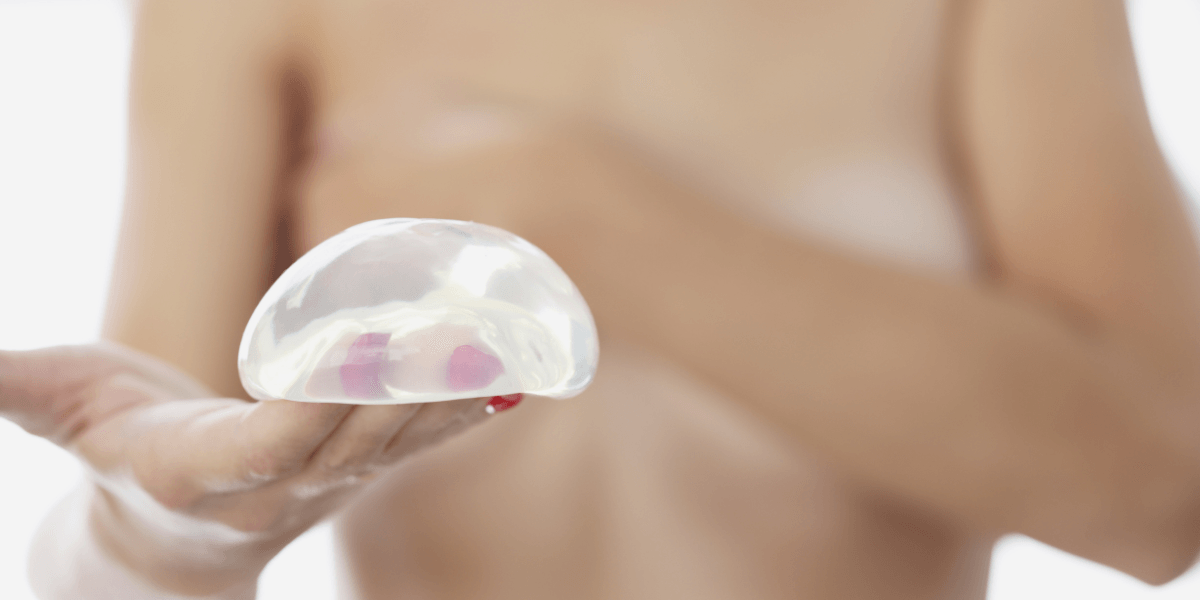What Are the 34 Symptoms of Menopause?
A lot of women experience a wide range of menopause symptoms that can affect their everyday lives. Here's the answer to the question, "What are the 34 symptoms of menopause," as well as a special dietary supplement you can take to help you deal with them.
RELATED: How to Stop Stressing and Get Better Sleep
What Are the 34 Symptoms of Menopause | All You Need to Know
What Is Menopause?
The National Institute on Aging defines menopause as "a point in time 12 months after a woman's last period." Natural menopause often happens between the ages of 45 and 55. Some women experience menopause early (premature menopause), starting before the age of 40.
The transition to it is filled with menopausal symptoms that last for an average of 7 years, but can go on for as long as 14 years in some cases. This duration depends on a number of factors like race, ethnicity, lifestyle, the age that menopause starts, and many more.
The period is filled with physical symptoms such as hot flashes, painful intercourse, irregular periods, and many more. It is also filled with mental and emotional symptoms like sudden mood changes, irritability, and even depression.
Women experience menopause in a variety of ways. In general, however, menopausal women experience more or less the same symptoms. Most of these are listed in the next section.
What Are the Physical Symptoms of Menopause?
1. Changes in a Person's Periods
One of the most common symptoms of menopause that women experience is a shift in the pattern of a her menstrual cycle.
These changes often happen during the menopausal transition period known as perimenopause, the months or years leading up to menopause. During this time, hormone levels change, altering the symptoms, regularity, and even the frequency of a woman's periods.
Some changes that might happen as estrogen and progesterone levels go down, and as other hormones are affected, include:
- Irregular periods - Women may experience spotting between menstrual periods, irregular periods, or both. This happens as the lining of the uterus grows thicker.
- Longer, heavier periods - This occurs as a result of the lining of the uterus taking longer to shed and having more time to grow thicker.
- Lighter periods - Estrogen and progesterone are crucial hormones when it comes to a woman's menstrual cycle. These are hormones that cause an increase in the thickness of the lining of the uterus. When estrogen levels become low, people might start experiencing lighter periods.
- Less frequent periods - Less ovulation may also affect a woman's cycle, causing her to experience periods less frequently.
- Changing menstrual symptoms - People may also start experiencing either an increase or a decrease in the other symptoms they experience such as menstrual cramps.
Over time, a person's periods will become less frequent until it stops altogether. Doctors say that menopause occurs a year after a person's last period.
If you experience changes in your menstrual cycles or menstrual periods, or if you have any other menopause-related health concerns, it is always best to visit your healthcare provider and seek medical advice.
This will help you make sure that the changes, especially unnatural bleeding, are not caused by a different medical condition. Some healthcare providers also advise patients to take hormonal birth control pills that help regulate a person's menstrual period.
2. Hot Flashes
Menopausal hot flashes is another common symptom of menopause. A person may become sweaty, flushed, and hot in general. This is often a sudden feeling felt in the chest, neck, and face.
Some people also experience chills or cold flashes accompanied by migraines or irritability, though these are a lot less common.
3. Night Sweats
Women experience hot flashes at night, and these are called night sweats. While doctors are not sure what really causes them, the widely-accepted theory is that they are a result of lowered estrogen levels. Estrogen deficiency and other hormonal changes can affect the hypothalamus that regulates the body's temperature.
According to research, these night sweats and hot flashes are experienced by as many as 85 percent of women. Another study shows that these menopause symptoms happen for an average of 5.2 years, but may last longer if they happen earlier in life.
Hot flashes and night sweats often start during perimenopause, but continue to be experienced until menopause.
4. Sleep Disturbance
Another common menopause symptom is sleep disturbance. Many women experience disrupted or lighter sleep during menopause for a number of reasons.
Some of these may be because of hormonal fluctuations that cause a person to wake up earlier, find it hard to fall asleep, or experience hot flashes.
5. Decreased Libido
Menopause symptoms may also include a decrease in libido - a person's desire for sex. This may affect a person's sex life, causing her to not want to have sexual intercourse with her partner.
Decreased libido can be a result of lower estrogen and testosterone levels. It may also be a result of the other symptoms of menopause like mood changes, or even as a side effect of certain medications.
6. Weight Gain
Many women who experience menopause symptoms also experience weight gain. This is because of a number of reasons, such as estrogen deficiency, lower amounts of physical activity, and mood changes that can cause a change in eating patterns.
Uncontrolled weight gain is one of many health risks that may lead to a number of other health conditions later on. It can lead to an increased risk of developing heart disease, diabetes, hypertension, depression, and many more.
Because of these, it is even more important that you power through and engage in regular exercise and maintain a healthy diet so you can stay at a healthy weight.
7. Bloating
Menopause symptoms may also include bloating for a number of reasons. During the menopausal transition, women may experience gassiness, water retention, and slower digestion.
All these paired with changes in eating habits may all lead to bloating.
8. Burning Mouth
Burning mouth is yet another symptom of menopause that manifests as a feeling of tenderness, heat, numbing, tingling, or burning in or around the mouth. This is also because of changes in a person's hormone levels.
Mucus hormones in a person's mouth also has sex hormone receptors. These decrease alongside the decline in a person's estrogen levels, and can contribute to the discomfort or pain a person feels.
9. Changes in Taste
One of the less common menopausal symptoms is changes in taste. During this period, some women might notice that their sense of taste experiences stronger flavors.
There are also those who experience a dry mouth. Left unresolved, this can lead to a higher risk of developing cavities and other gum diseases.
10. Other Digestive Changes
Women may also notice certain changes in their digestion. Their stomach might react differently to certain foods. This is primarily because of the hormonal changes women experience during this period.
Female sex hormones have an effect on a person's microbes which are located in the digestive tract and in the mouth. During menopause, the gut flora of a woman also changes, which, in turn, affects digestion.
11. Headaches
Migraine and more frequent headaches are also very common menopause symptoms. This is also caused by the dip in estrogen levels, and is characterized as similar to headaches that often accompany a woman's period.
Unlike headaches experienced during the usual menstrual periods, however, these headaches have a tendency to fluctuate unpredictably.
12. Dizzy Spells
Another menopause symptom caused by hormonal changes is dizzy spells. This is experienced more commonly during the menopause transition period, as it can affect the body's insulin production.
As a result, your body might find it harder to maintain the stability of its blood sugar. This is common especially during the pre-menopause and early menopause periods, but goes down in frequency with time. At times, it also may happen alongside hot flashes.
13. Fatigue
Fatigue is one of the most debilitating and distressing menopause symptoms out there. This can be due to a number of factors and is usually a byproduct of all the other menopausal symptoms on this list.
Changes in your hormone levels in itself can cause fatigue. This is similar to the feeling of tiredness most women feel when they have their periods. Lower quality sleep caused by hot flashes can also lead to this in the long run.
Unfortunately, the only way to deal with it is to go to bed and sleep it off.
14. Breast Soreness
Breast soreness is often talked about when women's health conditions are being discussed. However, they do not necessarily mean that you need immediate medical treatment.
Breast tenderness is a common symptom of perimenopause and menopause. With time, however, its frequency just decreases naturally.
15. Joint Pain
Among its many functions, estrogen also helps keep joints lubricated and reduce inflammation. A decrease in it, therefore, can cause women to experience joint pain.
Estrogen functions to regulate the levels of fluid throughout the body. When the body's supply of this hormone goes down, women are then more prone to experiencing other menopause symptoms like arthritis and joint pains.
16. Muscle Tension and Aches
Women experiencing menopause or perimenopause will also often experience muscle tension and aches. These are caused by the same things that cause menopausal joint pains.
17. Tingling Extremities
Hormonal fluctuations that can affect the central nervous system can cause those tingling feelings in the arms, legs, hands, and feet. They're no cause for worry, though, as they only last for a few minutes at a time.
RELATED: Time to Glow With the Flow: Sensitive Skincare Tips
18. Electric Shock Sensations
Aside from the tingling feeling in the extremities, you might also experience sensations that feel somewhat like mini-electric shocks. Again, doctors theorize that these are caused only by the fluctuating hormone levels in the nervous system.
19. Itchiness
Estrogen also helps your body produce collagen and keep your skin hydrated. Because of this, estrogen decline may lead to dryness or itchiness around the vulva and in other parts of your body.
20. Thinning Hair
Thinning hair is a less known menopause symptom, but one that definitely affects a lot of women.
This, once again, is because of ovarian hormonal fluctuations that might lead to the shrinking of hair follicles. In turn, this leads to hair that sheds more easily and grows more slowly.
21. Brittle Nails
The body also finds it hard to produce keratin both during and after menopause. Nails need keratin for them to stay strong. A lack of it can cause weak or brittle nails that tend to easily break or crack.
22. Vaginal Dryness
Vaginal dryness can also happen during menopause as a result of lacking female sex or reproductive hormones.
These reproductive hormones help ensure good blood circulation and natural lubrication around the vagina. A lack of it can cause vaginal dryness that, in turn, can make penetrative sex painful or uncomfortable.
23. Urinary Incontinence
Urinary incontinence may present itself as either a sudden and unintentional loss of urine or a frequent urge to urinate. It is also commonly referred to as an "overactive bladder."
During menopause, the bladder and pelvic floor muscles can become weaker due to the fluctuating levels of hormones.
24. Allergies
Menopause may also cause spikes in histamine, a chemical that causes allergic reactions. This is why some women report either new or worsening symptoms of allergies during this period.
25. Osteoporosis
Loss of bone density is another result of declining estrogen levels. This is why perimenopause can also cause osteoporosis, a condition that leads to fragile bones that can break easily.
26. Irregular Heartbeat
Arrhythmia or irregular heartbeat is also common for women undergoing menopause. For postmenopausal women who have a family history of cardiovascular disease and who continue to experience this, however, it is crucial that they visit their healthcare provider as soon as possible.
Arrhythmia may also be a symptom of a heart condition. Your healthcare provider should be able to assess it and provide you with guidance on how to proceed. This is especially essential if you have a related medical history that can aggravate the condition.
27. Body Odor
Night sweats and hot flashes can also lead to an increase in body odor. Menopause can also make you feel stressed or anxious, which, in turn, can lead to more sweating and body odor.
What Are the Emotional and Mental Menopause Symptoms?
28. Difficulty Concentrating
Difficulty concentrating or mental fogginess can be a result of the declining levels of estrogen. These may also be caused by sleep issues that come from hot flashes. Again, with time, these symptoms merely pass.
29. Memory Lapses
Compromised sleep caused by hot flashes and hormonal fluctuations can also affect a person's focus and concentration.
30. Mood Swings
Sudden mood changes or swings are defined as unpredictable shifts in a person's mood that are not related to any particular life events. These may cause a person to feel weepy, sad, or angry, seemingly from out of nowhere.
This is especially common during perimenopause, but its frequency goes down with time as your hormones stabilize.
31. Anxiety
Anxiety is also a mood-related symptom experienced by women as they go through menopause. It often worsens at night, but might occur intermittently throughout the day as your hormones fluctuate.
Just like other mood-related menopause symptoms, however, these are often situational. The condition often improves as your hormones go back to their normal levels.
32. Irritability
Irritability is also an impact of menopause symptoms. Aside from hormonal imbalances, they might feel irritable due to the other physical symptoms like hot flashes, joint and muscle aches, lack of sleep, and many more that they experience during this period in life.
Either due to hormonal fluctuations or the impact of other menopause symptoms, females going through this change may find that they feel irritable. Stress or a lack of sleep may also contribute to this.
33. Depression
In some cases, hormonal imbalances may even lead to depression. If it is caused by menopause or perimenopause, then the condition is often situational and may not be long term. It may also be aggravated by significant life changes that women typically experience during this point in their lives.
As such, it is even more important that women who are going through menopause maintain a healthy lifestyle by eating a balanced diet, exercising regularly, and getting enough good quality sleep.
34. Panic Disorder
Some women experience panic attacks during menopause. When they happen suddenly or unexpectedly, they might be symptoms of panic disorder. These, like the other mood-related menopausal symptoms on this list, are most likely triggered by hormonal changes.
What Can I Take to Help Me Deal With the Symptoms of Menopause?
If you're experiencing symptoms like the ones listed above, then nutraMetrix Prime Feminene Female Support Formula might help.
nutraMetrix® Prime™ Feminene® Female Support Formula is a dietary supplement created to help reduce hot flashes and night sweats, as well as other mild symptoms commonly associated with menopause or perimenopause as well as PMS. It may help stabilize moods and keep hormones in balance during these challenging, yet natural, biological processes women go through.*
Specially formulated with select nutrients, nutraMetrix Prime Feminene includes herbs like black cohosh, dong quai, soy extract, wild yam and chaste berry. It also provides select vitamins to help with mood and stress. Prime Feminine helps women keep their bodies in balance resulting in a more balanced life. When juggling so many things in life, the last thing women want is to have unbalanced hormones and mood swings to deal with as well.*
*These statements have not been evaluated by the Food and Drug Administration. This product is not intended to diagnose, treat, cure or prevent any disease.
Conclusion
Dealing with menopause and its symptoms are natural parts of women's lives. The information above should not only help you prepare for these symptoms, but even give you a tried and tested way of dealing with them.
Up Next:
- Common Causes of Sagging Breasts and Tips for Prevention
- Stay in the Mood During Chemo: Tips for Low Libido
- Firm Breast Workout: 6 Chest Exercises to Lift Breasts










